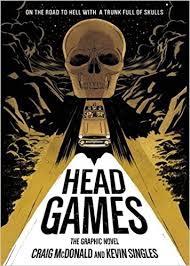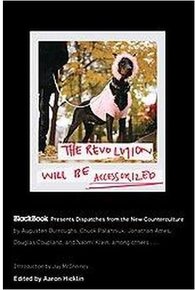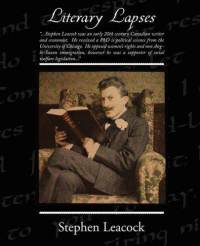 SOUNDTRACK: RHEOSTATICS: Bathurst Street Theatre, Toronto ON (October 7, 1994).
SOUNDTRACK: RHEOSTATICS: Bathurst Street Theatre, Toronto ON (October 7, 1994).
 This is the full 36 song version audience recording of the CBC Hot Ticket Show. The radio version was truncated (and sounds great). But this version sounds quite good as well. Notes:
This is the full 36 song version audience recording of the CBC Hot Ticket Show. The radio version was truncated (and sounds great). But this version sounds quite good as well. Notes:
“Song Of Flight” has been duplicated in 2 channels so doesn’t sound particularly good but the rest of the show sounds fine. A bit of chatter from time to time from people near the recorder. The 11 minute “Dope Fiends” in particular is pretty awesome.
This is the show they mentioned they’d be playing after their return from England (no recordings from England). This show is also nearly 3 hours and 36 songs.
There’s also a video of the show (below) which has a different audio. It is so interesting to finally see them playing these songs–I had many visual revelations watching this after seeing and imagining these shows for so long).
“Song of Flight” does sound crazy echoey. The video version’s audio is clean. I love watching Martin playing the great soaring notes and Dave playing the chords. The sound cleans up nicely for “California Dreamline.” I never knew Dave played the high notes during the verse or the wild notes during “disillusioned porpoise.” It’s also amazing how bouncy and animated Dave is.
“Soul Glue” sounds good. In the introduction to “Michael Jackson,” after Martin plays the “Sweet Child O’ Mine” riff, Dave says “Thank you Saul.” On the audio version, you can hear someone in the crowd ask, What did he say? A guy explains the premise of the song but misses the Slash joke. The end of the song (just the voices) is really long and sounds great. I see it’s just Tim and Martin.
Tim apologies for the show starting half an hour late, but they suggest it was a bonus half hour for “conversations and such.”
Then Dave says, “people talk about us having three record out but no we have 4.” He mentions Greatest Hits and someone shouts Wendell Clark. He hears it as “Do you miss Wendell? Sure.” Then Martin says, “he’s fishtailin. That’s a segue.” “Me and Stupid” is fast and rocking.
Dave introduces “Tim Mech our road manager who did the “Legal Age Life” guitar solo. He says Tim drove 16 hours consecutive from Thunder Bay to Toronto to get us back to our families and our pets and our loved ones. Then he drove to Washington DC for Danny Gatton’s funeral (a musician I don’t know).
Clark makes a segue that a van is like a car, you scratch your arm and you go like this…. Cough cough. You go like this…. (supposed to be a segue for Martin to start “Torque Torque.” He missed it. For this song Bidini is on bass, Tim is on acoustic guitar, Martin on a big old-fashioned guitar. After the song, he says, “Say goodbye to that guitar,” and switches back to his Steinberger.
Dave asks, “You remember the knob who played air drums at our last concert…here he is.” This is an introduction to “Mike” who is not seen.
It’s the same instrument configuration for “Introducing Happiness.”
Then there’s a discussion of Martin getting athlete’s foot in Cork—it was the highlight of our trip to Cork.
Martin has some trouble with his acoustic guitar and his shirt. He tells about Oprah Winfrey interviewing a guy who gaff taped everything in his house. His wife was so embarrassed. Clark, in watching Martin’s shirt get fixed with tape says, “For those of you who want to know the secret of life by a roll of gaff tape–it’ll fix your car, your clothes, your guitar.
I was intrigued to see that the fun parts of “In This Town” were played by Dave, while Martin plays acoustic.
For “Take Me In Your Hand,” Tim goes to the drums and Clark comes up front. He dances a little jig and sings harmony. Bidini plays bass.
When you see what the gaff tape has done to his shirt Bidini says, “Martin has affected an exclamation mark on his thing. “The first time Rheostatics played at The Edge in 1980, I went to Albion Mall and got them to press on an exclamation mark on a red shirt and my dad bought me blue velvety pants. I looked like a clown, but an excited clown!” He thanks Martin for recalling that evening. He says “Everything old is new wave again…except Canadian folk rock.”
Martin makes up a song “Everything old is new wave again.” They play around it a few times and then he says, “Okay, it’s not that funny.”
For “King of the Past,” Dave is on acoustic guitar while Tim plays the opening high notes on his bass. Martin plays the great opening effects.
When they play “Queer,” there’s no ending section because it segues right into “Full Moon Over Russia,” which has Dave and Martin talking to each other with their guitars (vocals and guitar playing the same note) “You seem very confused!” “What?!”
Tim grabs the accordion, Dave is on bass for “What’s Going On.” Martin has a little lyric problem, but when Clark asks if he’s starting again, he just presses on. Towards the end, there’s a cool jam with Dave on bass an Martin on guitar facing each other and challenging each other to play better. It’s pretty great.
After the song, Martin says, “A nightmare of mine has come true, my shirt’s falling off.”
This is probably my favorite version of “Row.” As the song heads to the end, there’s a lengthy drum part that builds and builds. It nearly takes over the song. Martin starts playing louder and louder and the whole time, Tim maintains his consistent playing. It hits an amazing climax. It’s a bit too loud in the recording but must have been very cool live.
I never realized that Tim played acoustic guitar and Dave played bass on “Claire.” The band jams with Martin making interesting sounds. They play Monstrous Hummingbirds which segues into “One More Colour” and then, half a dozen songs later, they finish up “Queer.” So cool.
“Dope Fiends” runs nearly 11 minutes long and is pretty fantastic. In the middle there’s even a didgeridoo (the video confirms that it is!). They thank the didgeridoo player but I can’t hear his name. Martin is making whale sounds on the guitar, there’s a lengthy drum solo and more of Martin’s guitar solo. And even after a quick return to the song before the ending, Tim starts funking it up and Martin gets a little more wailing in. It’s one of the most unusual jams the band has done.
When that ends, one of them says “We scheduled 20 songs and figured we’d be done by 12: 30 and we’re now an hour and a half ahead of schedule. [How?] So we’ll play one more, take a 5 minute break so people can stretch their feet and have a smoke and then we’ll play a second set. But they waste no time getting to that smoke with a blistering “R.D.A.”
They come back from the break and “Digital Beach” opens slowly (Martin has a new shirt and an acoustic guitar). It segues into a rocking “Self Serve Gas Station.”
After some banter about the game Risk and people who play it on a board versus people who play it on the computer, they play “Headless One,” a song I haven’t heard them play in a long time. For “Legal Age Life,” it’s like a fun folk party. Dave Clark comes up to sing and do a whistle solo. Bidini is on acoustic guitar. And near the end Tim gets to rhyme the line “We ain’t got nothing funny to say no more.” Then he’s back up front with the acoustic guitar for “Palomar.”
They play a lovely “Northern Wish” and then comes the wonderfully weird “Artenings Made of Gold.” The middle section is sung more and more like a children’s song–almost baby voices. I think they even sing “Davy is one, Timmy is two.”
The “digging a hole” section once again sounds like Frank Zappa. And when they get to the Uncle Henry section about the Maple Leafs, they pause and Dave says “could you please rise” and then they sing it like a barbershop quartet. It is such a shame that the video cuts off during this song. The very end has the band do another vocal harmony sans microphone? Bidini says, “A little tribute to Moxy Fruvous.”
Digging a hole sound like Zappa again.. maple leafs could you please rise? Then they “do it again” guitars off for the audience to sing the ned end
They play a boppy “Alomar” which segues somewhat surprisingly into “Onilley’s Strange Dream.”
People start shouting out requests and then someone shouts “play whatever you want!” A person shouts “Saskatchewan” and Dave says “Carte Blanche? we stopped playing that years ago.” When another person requests “Saskatchewan,” Dave says “That was Sakstachewan…part 2.” Dave says they’re going to play two more songs (they actually play 7 more).
Dave talks about the Green Sprouts Music Club and how people have joined from all over the world: Pakistan Australia, Thailand, Africa, Eurasia and Foxtrap, Newfoundland (he says people from Foxtrap are there tonight).
There’s some raging rocking during the middle of “When Winter Comes” but overall the main part is kind of slow. The “blue Canadian winter” is practically whispered.
There are more and more shouts for “Horses,” but they play a great “Shaved Head” instead. And then they play a very folkie “Bread Meat Peas and Rice.” There’s some crazy falsetto singing and they even get the audience to sing in the falsetto.
And then they kind of fly through the end: “A quick no-nonsense” Record Body Count,” then a fast and hectic “Green Sprouts Theme” where Dave shouts “skip the bridge” and then… silence until Bridge and they rock on!
There’s a few notes of “You Are Very Star” and Martin says “This is sort of an anthem, this one,” but they play a crazy fast “P.R.O.D.” They play a verse and then segue back to the “Green Sprouts Theme” and then they play it slower and Dave says “I’m sleepy guys” and they start playing slower and slower saying “1 2 3 and 4” and it slowly segues into the lullaby “You Are Very Star.” People are still shouting requests and yes the guy who is still shouting for “Horses” should know better. For Martin is playing a lovely acoustic guitar outro.
This is another great set and is, as far as I can tell the final show (at least on the website) with Dave Clark on drums.
[READ: June 20, 2017] “The Hardworking Immigrant Who Made Good”
This issue has a section of essays called “On the Job,” written by several different authors.
Sharma was going to Harvard law school, so he did what many of his fellow students did–he applied at banks for jobs. (more…)
Read Full Post »
 Back in the 1990s, it was common to buy a compilation or soundtrack or even a band’s album based on one song. Only to then find that you didn’t really like anything else on it.
Back in the 1990s, it was common to buy a compilation or soundtrack or even a band’s album based on one song. Only to then find that you didn’t really like anything else on it.



















 SOUNDTRACK: THE MOMMYHEADS-Flying Suit (1994).
SOUNDTRACK: THE MOMMYHEADS-Flying Suit (1994). The Mommyheads continue the Dromedary catalog’s streak of consistently poppy indie rock. Throughout the disc, the The vocals are gentle and falsettoed, setting kind of a trend on the label thus far.
The Mommyheads continue the Dromedary catalog’s streak of consistently poppy indie rock. Throughout the disc, the The vocals are gentle and falsettoed, setting kind of a trend on the label thus far.